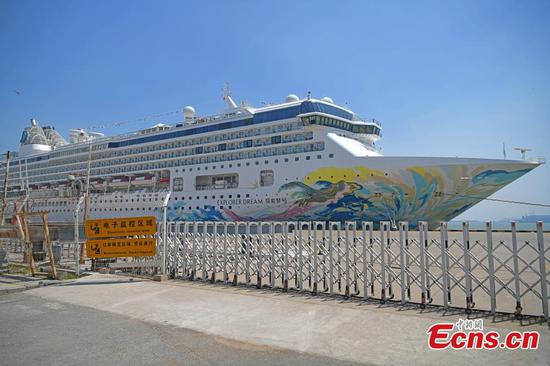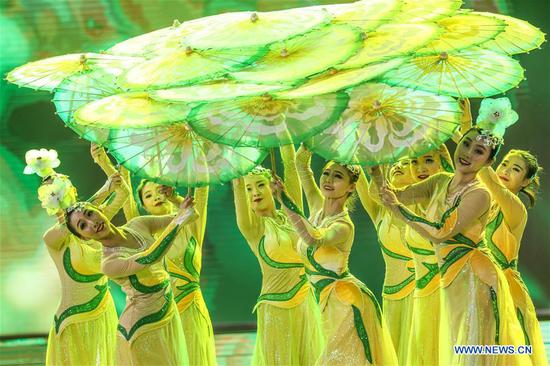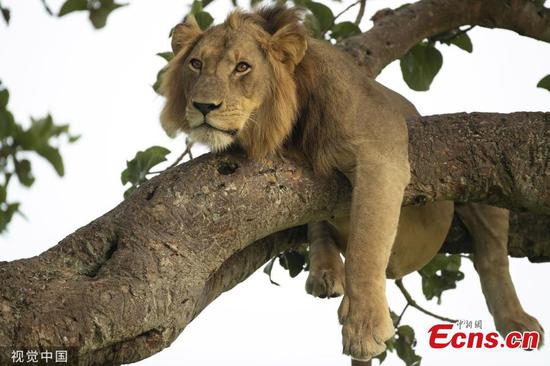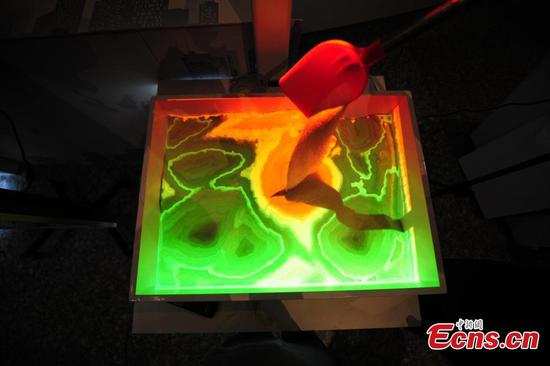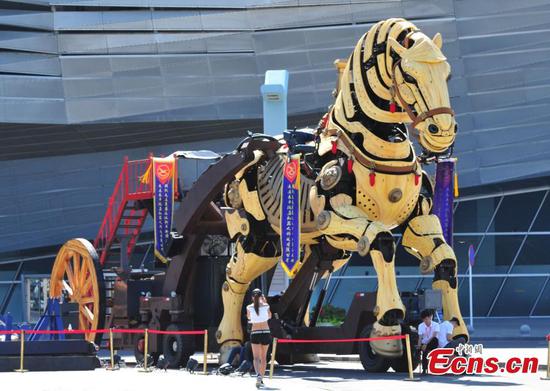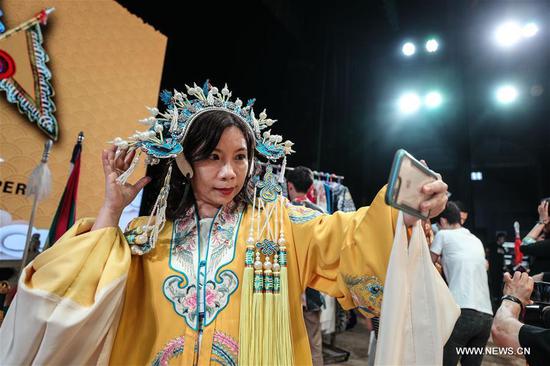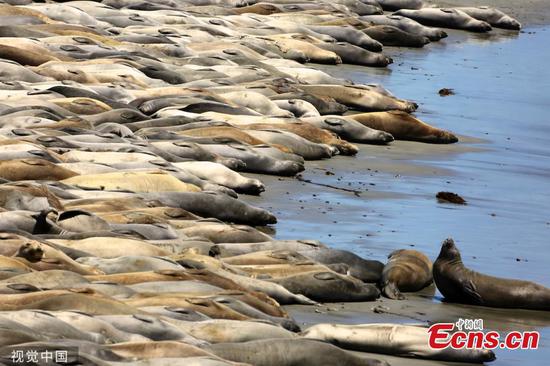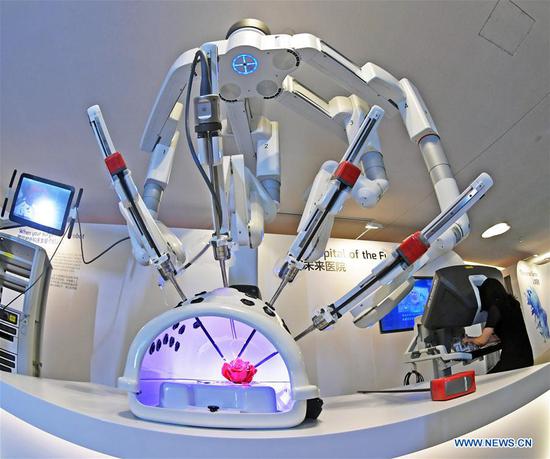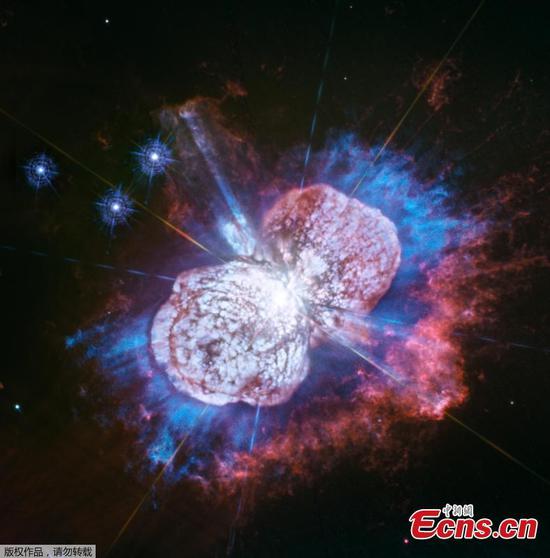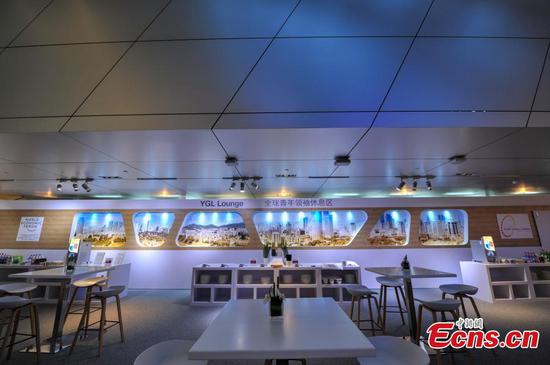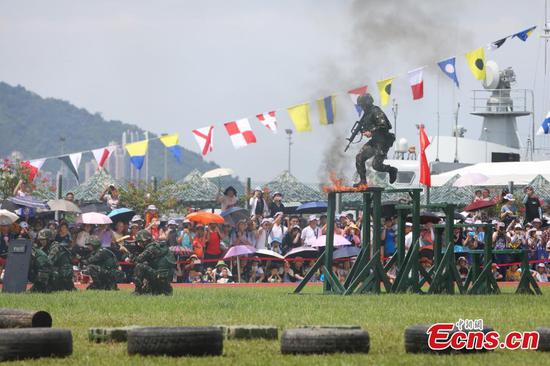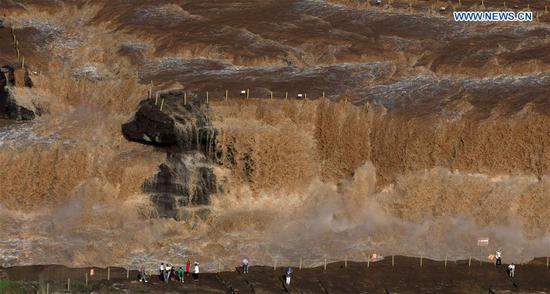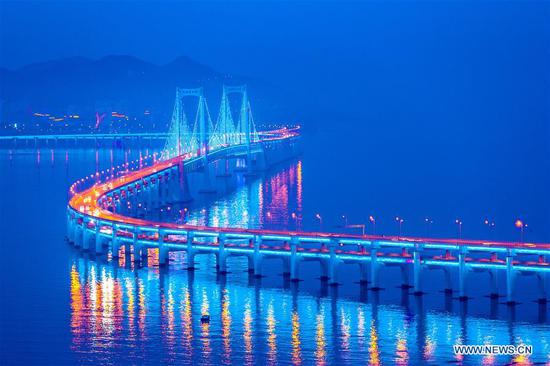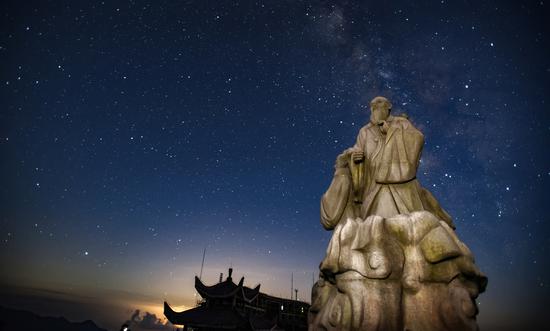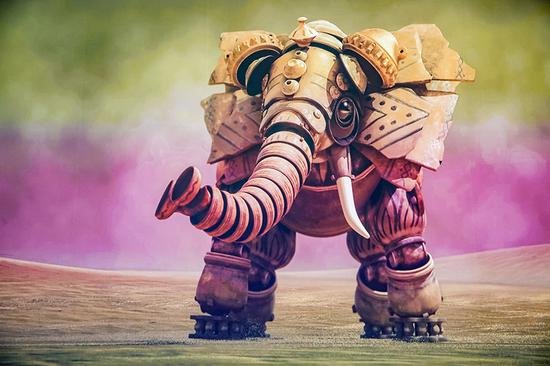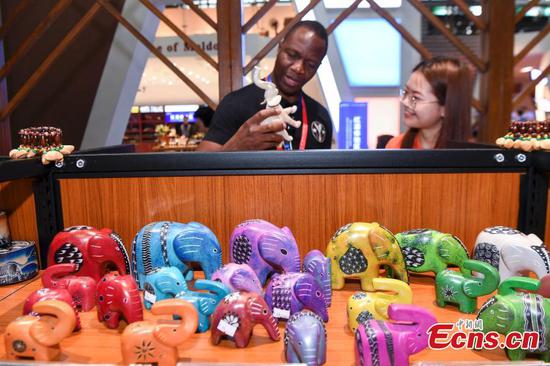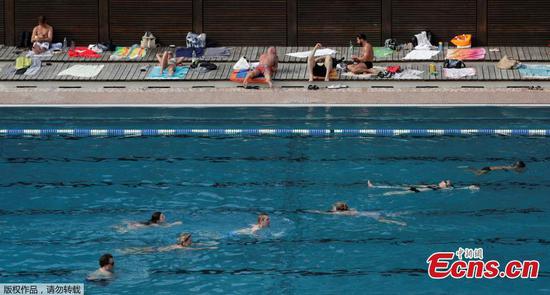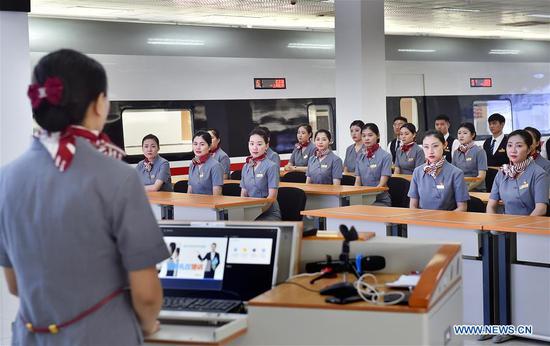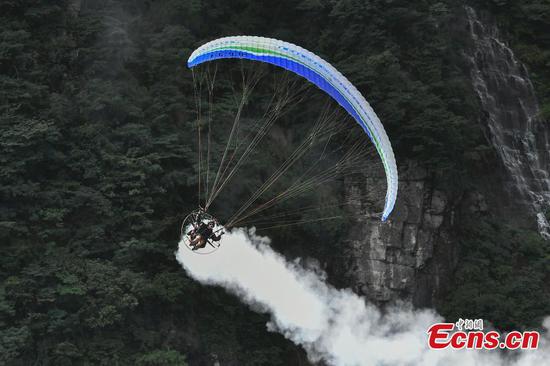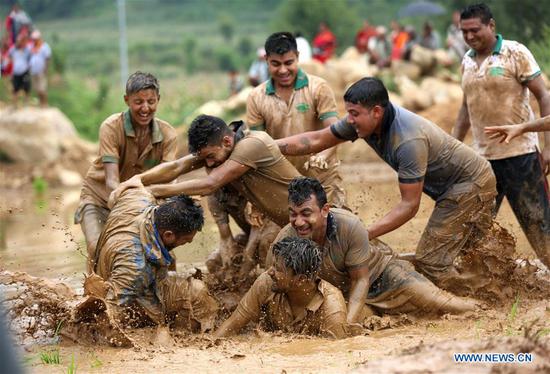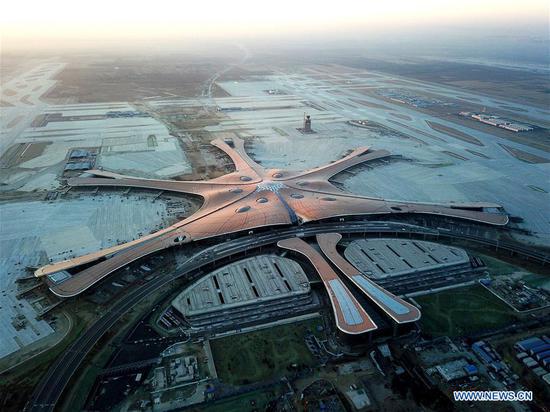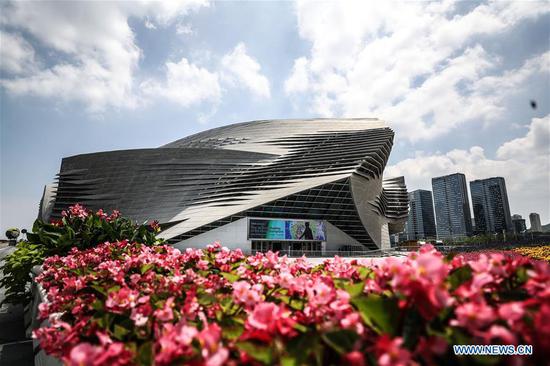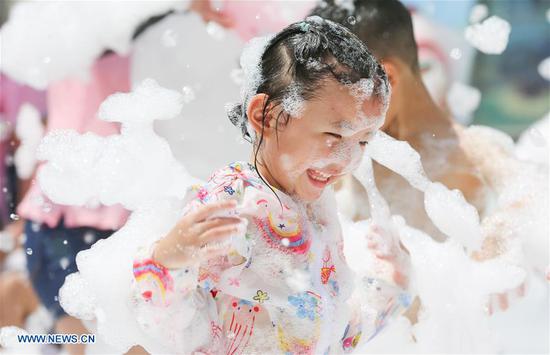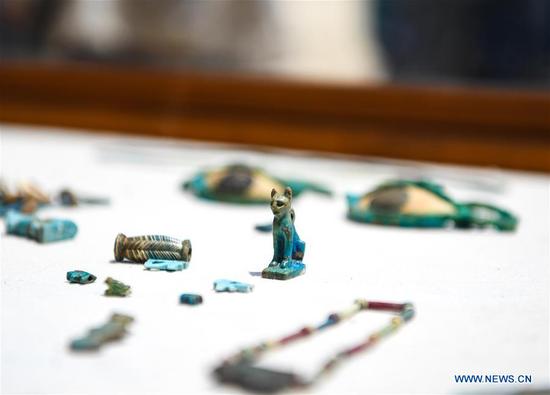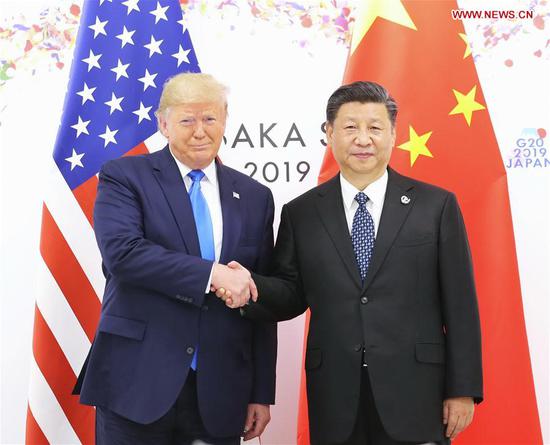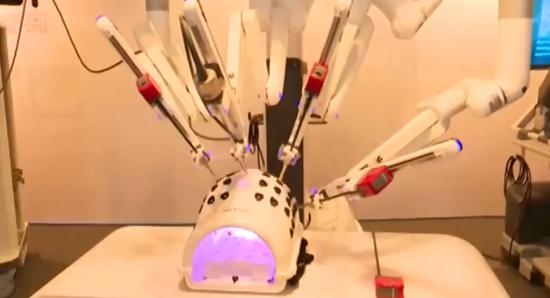
Attendants experience a product at a sleep-aid industry expo in Beijing. (Photo by Pang Zhengzheng/for China Daily)
Cao Ying got into bed for the fifth time in the same night after drinking a whole bottle of "sleep water" she bought online in an attempt to regulate her sleep patterns. She put on her headphones and turned on a white noise app to help relax, only to find her brain focusing on the day's events.
The 29-year-old Beijing-based office worker has had problems sleeping for almost six months. "Every time there's a new product on the market, I want to try it to see if it helps to improve my sleep quality. I'm planning to buy a pillow that can analyze my sleep cycles."
Cao is not alone among people of her age. A 2018 report by online medical consulting service provider DXY and the research institute under Health News revealed that 84 percent of people born in the 1990s have problems sleeping, the highest among all age groups.
Compared with past generations, who are more likely to seek help from hospitals and clinics, those born in the 1990s are attracted to innovative products to improve the quality of their sleep. An industry report estimated that the post-1990 generation were the major buyers of products to help sleep on Taobao from 2015 to 2017, with sleep masks, noise-canceling headphones, and foot pads (herbal pads with adhesive strips) becoming the top three most popular products.
"Today, the post-1990 or even post-2000 generations are experiencing sleep disorders much earlier than past generations for various reasons, like work stress and housing pressure. They like innovative products and are more willing to try new stuff," said Peng Zhiping, deputy director at the sleep center of Beijing Policemen Hospital and assistant secretary-general of the China Sleep Research Society.
Business operators have certainly taken notice. Xu Zhao, CEO of Zhikao Sleep, said there's a surging need for monitoring children's sleep. Hu Junhao, founder and CEO of Darma, said they are working on offering solutions through tech-embedded sleep products such as mattresses.
While both have focused on tech-equipped products, the overall market of innovative sleep-aid products is much bigger. Aromatherapy, ASMR (autonomous sensory meridian response) video or audio products, sleep-monitoring apps, meditation-before-sleep apps, sleep-improving pillows and mattresses, not to mention the already popular sleep-aid drinks or food infused with melatonin.
Although the exact market size remains unknown, industry experts believe innovative sleep-aid products and services are growing to be a major part of the whole sleep-aid market, a market that has hit 279.7 billion yuan ($40.9 billion) and is still surging, according to a report by Bosi Data Research Center.
"Young people's increasing interest in innovative sleep-aid products has spurred a huge market, but also brought about many problems, "said Peng.
In comparison to traditional sleep-aid products and services, which are usually offered by hospitals and clinics and thus have clear regulations for prescriptions and medical treatment, Peng said many new products popular on the market, such as "sleep water" and other drinks or food, lack proper supervision and regulations, although many are infused with sleep improvement medicines.
"For instance, some products on the market contain stabilizers, but in extremely small amounts. Some business operators consider their products to be food or drinks, which means the products are assessed as such, rather than as medicines, before they go on the market," Peng said.
"Also, the reasons why people cannot sleep vary from person to person. It's difficult to offer a proper prescription for each patient. It's risky to try food or drinks that claim to offer a sleep improvement solution for all," he added.
"Even for products like white noise, it's better to use them under proper guidance, as some patients might be sensitive to a certain type of white noise, which is likely to make it harder for them to fall asleep," Peng said.
Despite some reticence about the new market, Peng said it is improving with gathering efforts from regulators, institutes and researchers, and medical associations.












